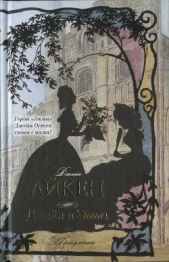Маленький Темби.

Маленький Темби. читать книгу онлайн
Рассказ о непростых взаимоотношениях фермеров-англичан и южноафриканцев.
Внимание! Книга может содержать контент только для совершеннолетних. Для несовершеннолетних чтение данного контента СТРОГО ЗАПРЕЩЕНО! Если в книге присутствует наличие пропаганды ЛГБТ и другого, запрещенного контента - просьба написать на почту [email protected] для удаления материала
Willie McCluster, who had also been born and raised in South Africa, was nevertheless unmistakably and determinedly Scottish. His accent might be emphasized for loyalty's sake, but he had kept all the fine qualities of his people unimpaired by a slowing and relaxing climate. He was shrewd, vigorous, earthy, practical and kind. In appearance he was largely built, with a square bony face, a tight mouth, and eyes whose fierce blue glance was tempered by the laughter wrinkles about them. He became a farmer young, having planned the step for years: he was not one of those who drift on to the land because of discontent with an office, or because of failure, or vague yearnings towards 'freedom'. Jane, a cheerful and competent girl who knew what she wanted, trifled with her numerous suitors with one eye on Willie, who wrote her weekly letters from the farming college in the Transvaal. As soon as his four years' training were completed, they married.
They were then twenty-seven, and felt themselves well- equipped for a useful and enjoyable life. Their house was planned for a family. They would have been delighted if a baby had been born the old-fashioned nine months after marriage. As it was, a baby did not come; and when two years had passed Jane took a journey into the city to see a doctor. She was not so much unhappy as indignant to find she needed an operation before she could have children. She did not associate illness with herself, and felt as if the whole thing were out of character. But she submitted to the operation, and to waiting a further two years before starting a family, with her usual practical good sense. But it subdued her a little. The uncertainty preyed on her, in spite of herself; and it was because of her rather wistful, disappointed frame of mind at this time that her work in the clinic became so important to her. Whereas, in the beginning, she had dispensed medicines and good advice as a routine, every morning for a couple of hours after breakfast, she now threw herself into it, working hard, keeping herself at full stretch, trying to attack causes rather than symptoms.
The compound was the usual farm compound of insanitary mud and grass huts; the diseases she had to deal with were caused by poverty and bad feeding.
Having lived in the country all her life, she did not make the mistake of expecting too much; she had that shrewd, ironical patience that achieves more with backward people than any amount of angry idealism.
First she chose an acre of good soil for vegetables, and saw to the planting and cultivating herself. One cannot overthrow the customs of centuries in a season, and she was patient with the natives who would not at first touch food they were not used to. She persuaded and lectured. She gave the women of the compound lessons in cleanliness and baby care. She drew up diet sheets and ordered sacks of citrus from the big estates; in fact, it was not long before it was Jane who organized the feeding of Willie's two-hundred-strong labour force, and he was glad to have her help. Neighbours laughed at them; for it is even now customary to feed natives on maize meal only, with an occasional slaughtered ox for a feasting; but there was no doubt Willie's natives were healthier than most and he got far more work out of them. On cold winter mornings Jane would stand dispensing cans of hot cocoa from a petrol drum with a slow lire burning under it to the natives before they went to the fields; and if a neighbour passed and laughed at her, she set her lips and said good-humouredly: 'It's good sound common sense, that's what it is. Besides — poor things, poor things! Since the McClusters were respected in the district, they were humoured in what seemed a ridiculous eccentricity.
But it was not easy, not easy at all. It was of no use to cure hookworm-infested feet that would become reinfected in a week, since none wore shoes; nothing could be done about bilharzia, when all the rivers were full of it; and the natives continued to live in the dark and smoky huts.
But the children could be helped; Jane most particularly loved the little black piccanins. She knew that fewer children died in her compound than in any for miles around, and this was her pride. She would spend whole mornings explaining to the women about dirt and proper feeding; if a child became ill, she would sit up all night with it, and cried bitterly if it died. The name for her among the natives was The Goodhearted One. They trusted her. Though mostly they hated and feared the white man's medicines, [3] they let Jane have her way, because they felt she was prompted by kindness; and day by day the crowds of natives waiting for medical attention became larger. This filled Jane with pride; and every morning she made her way to the big stone-floored, thatched building at the back of the house that smelled always of disinfectants and soap, accompanied by the houseboy who helped her, and spent there many hours helping the mothers and the children and the labourers who had hurt themselves at work.
Little Tembi was brought to her for help at the time when she knew she could not hope to have a child of her own for at least two years. He had what the natives call 'the hot weather sickness'. His mother had not brought him soon enough, and by the time Jane took him in her arms he was a tiny wizened skeleton, loosely covered with harsh greyish skin, the stomach painfully distended. 'He will die, moaned the mother from outside the clinic door, with that fatalistic note that always annoyed Jane. 'Nonsense! she said briskly — even more briskly because she was so afraid he would.
She laid the child warmly in a lined basket, and the houseboy and she looked grimly into each other's faces. Jane said sharply to the mother, who was whimpering helplessly from the floor where she squatted with her hands to her face: 'Stop crying. That doesn't do any good. Didn't I cure your first child when he had the same trouble? But that other little boy had not been nearly as sick as this one.
When Jane had carried the basket into the kitchen, and set it beside the fire for warmth, she saw the same grim look on the cookboy's face as she had seen on the houseboy's — and could feel on her own. 'This child is not going to die, she said to herself. 'I won't let it! I won't let it. It seemed to her that if she could pull little Tembi through, the life of the child she herself wanted so badly would be granted her.
She sat beside the basket all day, willing the baby to live, with medicines on the table beside her, and the cookboy and the houseboy helping her where they could. At night the mother came from the compound with her blanket; and the two women kept vigil together. Because of the fixed, imploring eyes of the black woman Jane was even more spurred to win through; and the next day, and the next, and through the long nights, she fought for Tembi's life even when she could see from the faces of the house natives that they thought she was beaten. Once, towards dawn of one night when the air was cold and still, the little body chilled to the touch, and there seemed no breath in it, Jane held it close to the warmth of her own breast, murmuring fiercely over and over again: 'You will live, you will live' — and when the sun rose the infant was breathing deeply and its feet were pulsing in her hand.
When it became clear that he would not die, the whole house was pervaded with a feeling of happiness and victory. Willie came to see the child, and said affectionately to Jane: 'Nice work, old girl. I never thought you'd do it. The cookboy and the houseboy were warm and friendly towards Jane, and brought her gratitude presents of eggs and ground meal. As for the mother, she took her child in her arms with trembling joy and wept as she thanked Jane.
Jane herself, though exhausted and weak, was too happy to rest or sleep: she was thinking of the child she would have. She was not a superstitious person, and the thing could not be described in such terms: she felt that she had thumbed her nose at death, that she had sent death slinking from her door in defeat, and now she would be strong to make life, fine strong children of her own; she could imagine them springing up beside her, lovely children conceived from her own strength and power against sneaking death.


























